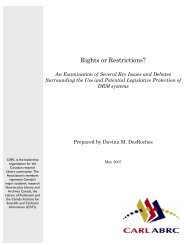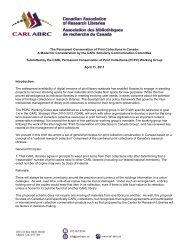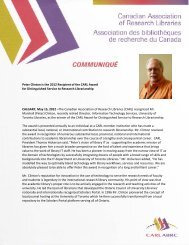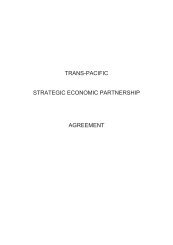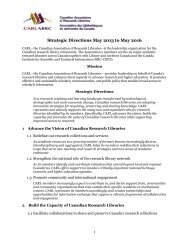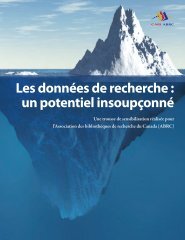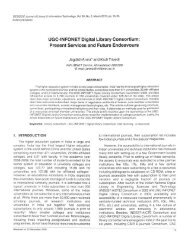PDF - CARL - ABRC
PDF - CARL - ABRC
PDF - CARL - ABRC
Create successful ePaper yourself
Turn your PDF publications into a flip-book with our unique Google optimized e-Paper software.
‐ In the case of open digital repositories, a useful tool to track their own research record, a useful cv<br />
building tool (e.g. simple creation of lists of publications, presentations given, data sets and learning<br />
objects created)<br />
Universities<br />
Particularly with open digital repositories:<br />
‐ Showcases the institution’s creative/intellectual output to the world, increasing the visibility of its<br />
research programme<br />
‐ Higher visibility of the universities research output offers great potential to draw several<br />
constituencies’ attention : prospective staff, prospective collaborators from other institutions,<br />
prospective students, and other possible stakeholders in the public and private sector<br />
‐ Provides a workspace and collaborative tools for large scale research projects and works in progress<br />
‐ Presents an institutional commitment for long‐term curation and preservation of the University’s<br />
digital intellectual outputs<br />
‐ Greatly facilitates multi/cross‐disciplinary approaches to research that, in turn, lead to more<br />
innovations and discoveries thus increasing the institution’s research output<br />
‐ Provides a useful tool in measuring research and teaching activities at the institution<br />
Students<br />
‐ Coursework and thesis research greatly facilitated by improved access to research literature<br />
‐ No need to worry about being on campus network or not since all that is needed is an internet<br />
connection<br />
‐ Access to peer‐reviewed article manuscripts or open access monograph chapters a viable alternative to<br />
course packs / or could help drive down the costs through inclusion of materials that do not require<br />
payment of royalty fees<br />
‐ Time saved by not having to wait for inter‐library loan for research material<br />
Publishers<br />
‐ Learned societies’ and commercial publisher’s role in reviewing, editing and distributing research is not<br />
diminished by transitioning to open access models and practices<br />
‐ As researchers share the results of their work more widely more research and scholarship is created;<br />
publishing professionals are still needed to manage the selection and vetting of high quality research<br />
‐ Brief embargoes of six months to a year, allow for the maintenance of healthy publishing programs 9<br />
‐ Since the National Institutes of Health public access mandate came into effect in 2008, many<br />
publishers work with the NIH in depositing final, published versions of articles because of (1) a<br />
preference that readers use the published versions, (2)this provides authors a competitive advantage<br />
9 Data show that libraries will not cancel subscriptions to journals with short embargo periods. Some of reasons for<br />
this are: researchers and students require access to the scholarly literature as soon as possible, so an embargo of<br />
any length constitutes too long a delay, and journals also contain valuable information and articles beyond publicly<br />
funded research. Comments of Association of Research Libraries Concerning “Public Access Policies for Science and<br />
Technology Funding Agencies across the Federal Government,” Submitted to the Office of Science and Technology<br />
Policy, January 15, 2010<br />
4




